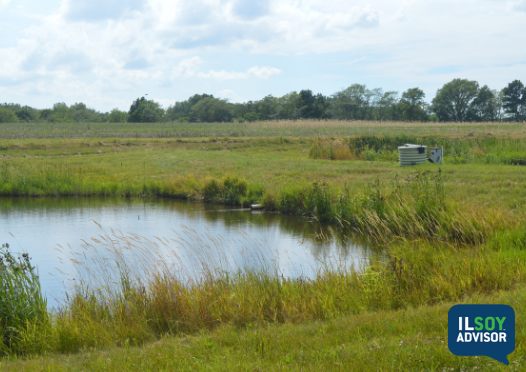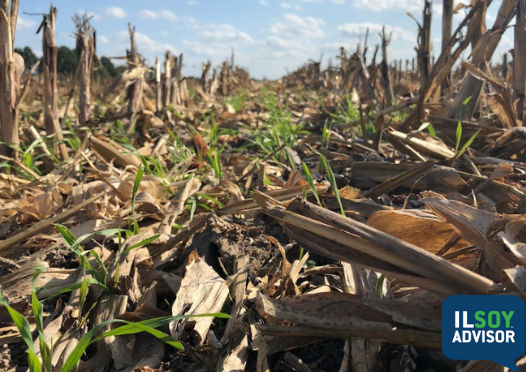ILSOYADVISOR POST
Agronomy: Cover Crops: A Farmer’s Perspective
Our first year of cover cropping was successful overall. Like any crop production, it takes good management, stewardship and optimism.
We wanted to add cover cropping to our practices because we knew that simply applying synthetic fertilizers would not promote greater production and higher yields in the future. The fact is organic matter and soil health are just as valuable as the fertilizers we buy and apply each year. A perfect example would be to compare our soils to South African farmers’ soils. A group visits our farm each year to learn about what we do, and share their challenges. What we learned was that they describe their soils as ‘dead.’ Little to no organic matter exists because they have ‘farmed’ all of it out. And because of this, they cannot produce the crop yields like we are fortunately able to do.
Fact: Farming has reduced HALF of our available organic matter in the last 100 years.
How can cover crops help? Let’s go back to the basics. What did organic matter come from? Years of plants constantly covering and growing crops on the surface and roots below the surface of the soil, laid bare only due to prairie fires. If we can keep a crop on top of the soil year round, whether it is for production or cover cropping, we can accomplish the same as the prairies did.
The soil is alive! Think of cattle grazing a pasture. They eat the plants, digest and release what is waste to them but food to the soil microbes; or as I like to put it, the ‘cattle underground.’ Microbes in the soil are processing lots of things like manure and dead roots. And guess what waste is to them – food they relish? Organic matter and nitrogen! For those of you that have had livestock on pasture and switched it back to corn know what I mean. And did you have to spend the same amount of money on fertilizer compared to your ground regularly involved with crop production? Certainly not.
The practices on our farm involve practicing land stewardship to the best of our ability. It may not work for all farms everywhere. I believe that we will almost always need to use synthetic fertilizers in crop production. But it is my hope that the use of cover crops will allow our farm to depend less on fertilizers and with more reliance on soil performance, broadening the narrow margins of agriculture we face today and protecting our organic matter for future generations.
Trent Sanderson
GPS/Mapping Technician, Sanderson Ag
www.sandersonag.com




Comments
Add new comment